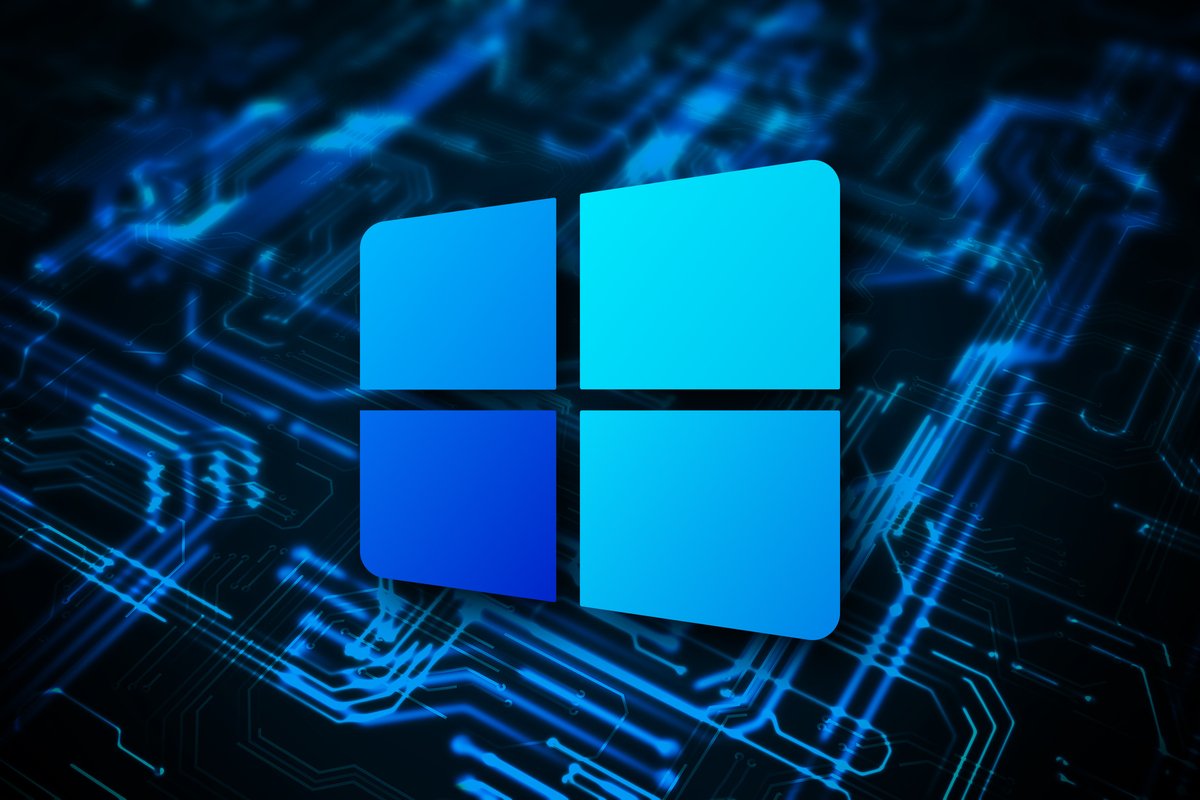Global tech merger-and-acquisition deals totaled $634.1 billion in 2020, an increase of 91.8% year-on-year
Amid the coronavirus, 2020 was unpredictable in more ways than anyone would have expected. But one thing that stayed fairly constant was the steady flow of mergers and acquisitions (M&A) across the tech sector.
Global tech M&A deals last year totalled $634 billion, a 91.8% year-over-year increase, according to GlobalData. Among a late flurry of big deals was the $35 billion acquisition of Xilinx by Advanced Micro Devices and Salesforce’s $27.7 billion acquisition of Slack.
As for whether 2021 will maintain last year’s pace, if the first part of the year is anything to go by, there will be no slowing of big deals across the industry, with silicon innovations and collaboration software already proving to be hot areas.
Here are the biggest enterprise technology acquisitions of 2021 so far, in reverse chronological order:
July 18: Zoom acquires Five9 for $14.7B
Videoconferencing giant Zoom made its biggest acquisition to date, purchasing the contact center technology provider Five9 for $14.7 billion in an all-stock transaction.
Five9 is a 20-year-old California company that specializes in flexible cloud-based contact center technology, as opposed to traditional on-premise systems for contact center staff. Five9 competes with the likes of Twilio, Talkdesk, Genesys and cloud giant Amazon Web Services in what is becoming a crowded space.
“We are continuously looking for ways to enhance our platform, and the addition of Five9 is a natural fit that will deliver even more happiness and value to our customers,” Zoom CEO Eric Yuan said in a statement. “Enterprises communicate with their customers primarily through the contact center, and we believe this acquisition creates a leading customer engagement platform that will help redefine how companies of all sizes connect with their customers.”
Zoom launched its own cloud-based enterprise phone system in 2019; the company says the Five9 acquisition will complement that move, as the company looks to expand its reach with enterprise customers beyond its popular videoconferencing software.
July 13: Microsoft to acquire cybersecurity firm RiskIQ
Microsoft announced the acquisition of cybersecurity company RiskIQ for a reported $500 million. San Francisco-based RiskIQ specializes in threat intelligence, detection and protection for clients like BMW, American Express, and the US Postal Service.
“Microsoft has long been a leader in delivering end-to-end cloud-native security with Microsoft 365 Defender, Microsoft Azure Defender, and Microsoft Azure Sentinel that help protect, detect, and respond to threats in multi-cloud and hybrid cloud environments. With the acquisition of RiskIQ, we will continue our mission to help customers defend their growing digital estate against increasing cyber threats,” Eric Doerr, vice president for cloud security at Microsoft wrote in a blog post.
June 29: JFRog acquires Vdoo for $300M
Devops specialist JFrog announced it’s buying cybersecurity firm Vdoo in June for $300 million in cash and stock in a bid to help customers build more secure software. Vdoo has built an AI-based platform that detects software vulnerabilities specifically for connected devices, also known as the internet of things.
“It is clear to us that the joint vision of changing the way software is being created, released, and updated to the edge will be our compass as we offer the market a binary-focused solution to secure their organization’s software assets,” JFrog CEO Shlomi Ben Haim said in a statement. “This move will amplify JFrog’s current success with our security solution, JFrog Xray, and create the expectation that ‘fearless releases’ will be the experience for both Security and Development teams.”
June 25: AWS to acquire Wickr
Cloud giant Amazon Web Services (AWS) announced the purchase of secure messaging service Wickr for an undisclosed amount. The acquisition comes as AWS continues to push its services into the public and military sectors. “This gives security conscious enterprises and government agencies the ability to implement important governance and security controls to help them meet their compliance requirements,” AWS CISO Stephen Schmidt wrote in a blog post.
AWS says it will offer Wickr services to customers immediately; existing customers should notice no change.
June 24: Visa to acquire Tink for $2.15B
Payments giant Visa announced the planned acquisition of European fintech firm Tink for €1.8 billion ($2.15 billion) in June. The news comes just months after Visa abandoned a planned $5.3 billion acquisition of US firm Plaid, which builds similar technology, in the face of significant regulatory issues.
Based in Sweden, Tink has built an API that allows customers greater access to their bank account and payments data, allowing them to be collected in a single place and opening up a new range of digital banking services. This is possible thanks to new European Open Banking rules, which force banks to open up customer data to verified third parties.
“Joining Visa, we will be able to move faster and reach further than ever before. Visa is the perfect partner for the next stage of Tink’s journey, and we are incredibly excited about what this will bring to our employees, customers and for the future of financial services,” Tink co-founder and CEO Daniel Kjellén said in a statement.
June 21: Hyundai takes controlling stake in Boston Dynamics
South Korean automaker Hyundai announced it had taken a controlling stake in US robotics company Boston Dynamics in June, valuing the company at $1.1 billion.
Best known for its robot dog Spot and its warehouse robot, Handle — as well as haunting people’s nightmares on social media — Boston Dynamics has carved out an impressive reputation for itself in the still nascent robotics space.
“We and Hyundai share a view of the transformational power of mobility and look forward to working together to accelerate our plans to enable the world with cutting-edge automation, and to continue to solve the world’s hardest robotics challenges for our customers,” Boston Dynamics CEO Rob Playter said in a statement.
June 2: Prosus acquires Stack Overflow for $1.8B
Popular programming Q&A website Stack Overflow was acquired by South African investment firm Prosus for $1.8 billion in June.
“The most important part of this announcement is that Stack Overflow will continue to operate independently, with the exact same team in place that has been operating it, according to the exact same plan and the exact same business practices,” Stack Overflow cofounder Joel Spolsky wrote in a blog post at the time. “Don’t expect to see major changes or awkward ‘synergies.’ The business of Stack Overflow will continue to focus on Reach and Relevance, and Stack Overflow for Teams. The entire company is staying in place: we just have different owners now.”
May 11: Jamf acquires Wandera for $400M
Enterprise Apple device management specialist Jamf agreed to acquire zero trust cloud security company Wandera in May for $400 million. Jamf will look to bring Wandera’s mobile security capabilities into its own Apple device management suite.
“In order to lead Apple Enterprise Management and best serve the growing number of organizations using Apple at work, Jamf needs to fill the gap between what users want and what the enterprise requires,” said Jamf CEO Dean Hage in a statement. “The combination of Wandera and Jamf will provide our customers a single source platform that handles deployment, Application Lifecycle Management, policies, filtering, and security capabilities across all Apple devices while delivering Zero Trust Network Access for all mobile workers.”
May 10: ServiceNow acquires Lightstep
ServiceNow acquired software observability specialist Lightstep for an undisclosed amount. Observability is a hot technology area this year due to the increased complexity of enterprise systems in the cloud era, meaning engineers and tech leaders want more insight into how their systems are performing and what is causing issues — quickly. Post-acquisition, ServiceNow will look to bring these capabilities together with its existing tools, which are used by IT teams to respond to issues.
Founded in San Francisco by ex-Googlers, Lightstep had already raised around $70 million in venture funding from the likes of Sequoia, Redpoint, and Altimeter.
“This acquisition is going to help a great deal: ServiceNow’s customers run many of the most critical software applications in the world! As part of ServiceNow, Lightstep will be in a far better position to reach these customers, deliver our product, and help them innovate faster – with clarity and confidence,” Lightstep cofounder and CEO Ben Sigelman wrote in a blog post.
ServiceNow CEO Bill McDermott was an acquisitive chief during his time at SAP and appears to be taking this strategy with him in the new role, adding half a dozen new companies already since joining in 2019.
May 3: Dell sells Boomi for $4B
Dell made the second high-profile move to restructure its business in the space of a month by selling the integration specialist Boomi, which it acquired in 2010, to private equity firms Francisco Partners and TPG for $4 billion. This follows the earlier decision to spin out its VMware business in April.
“The ability to integrate and connect data and workflows across any combination of applications or domains is a critical business capability, and we strongly believe that Boomi is well positioned to help companies of all sizes turn data into their most valuable asset,” Francisco CEO Dipanjan Deb and partner Brian Decker said in a statement.
April 30: IBM acquires Turbonomic
IBM announced the acquisition of Turbonomic at the end of April for an undisclosed amount.
The Boston, MA-based company specializes in Application Resource Management (ARM) and Network Performance Management (NPM) software; it uses machine learning to spot application performance issues and optimize underlying resources, whether that involves containers, VMs, servers, storage, networks, and databases.
The acquisition is similar to the pick-up of Instana last year, as IBM looks to jump on the observability bandwagon. These acquisitions will all help IBM offer a greater range of AIOps and observability options for customers, particularly through its IBM Cloud Pak for Watson AIOps.
“IBM continues to reshape its future as a hybrid cloud and AI company,” Rob Thomas, senior vice president, IBM Cloud and Data Platform, said in a statement. “The Turbonomic acquisition is yet another example of our commitment to making the most impactful investments to advance this strategy and ensure customers find the most innovative ways to fuel their digital transformations.”
April 29: Microsoft acquires Kinvolk
Microsoft made a move to boost its capabilities in the Kubernetes space with the acquisition of German firm Kinvolk for an undisclosed amount.
Founded in 2015, Kinvolk has been building enterprise-grade tools to help developers adopt cloud-native technologies like containers and Kubernetes, including Flatcar Container Linux, as an alternative to CoreOS Container Linux, as well as the Lokomotive and Inspektor Gadget projects.
Microsoft expects to integrate the Kinvolk team and technology into the team responsible for its managed Azure Kubernetes Service (AKS), its hybrid solution Azure Arc, and to boost Microsoft’s upstream open-source contributions.
“We’re excited to bring the Kinvolk team and their technologies to Microsoft and look forward to the contributions they bring to Azure, our customers, and the open source community,” Brendan Burns, corporate vice president, Azure Compute wrote in a company post.
April 23: Panasonic acquires Blue Yonder for $7.1B
Panasonic acquired the remaining 80% of shares in Blue Yonder in April, spending $7.1 billion, including the repayment of debt.
Arizona-based Blue Yonder specializes in automated supply chain software that uses AI, IoT, and edge computing technology to track goods. Panasonic will look to add these capabilities to its Autonomous Supply Chain offering, which helps customers better track their supply chain and predict future demand for better efficiency.
“I’m extremely happy to welcome Blue Yonder and its associates to the Panasonic Group. Both companies have the same mission to support customers’ frontline operations and we have a high affinity in our corporate cultures. By merging the two companies, we would like to realize a world where waste is autonomously eliminated from all supply chain operations and the cycle of sustainable improvement continues,” Panasonic CEO Yuki Kusumi said in a statement.
April 15: IBM to acquire myInvenio
IBM acquired process automation specialist myInvenio for an undisclosed amount. The Italian firm specializes in process mining, a fairly nascent technology that allows enterprises to identify inefficient business processes and find opportunities for greater automation using data and software.
The acquisition marked the continuation of a bit of a trend, as fellow vendor SAP acquired process automation specialist Signavio earlier this year (see below). IBM will fold myInvenio into its existing Automation business unit.
COMPUTERWORLD



